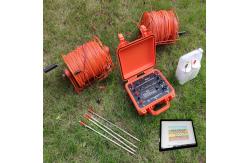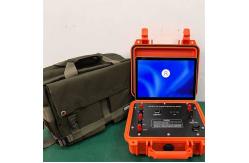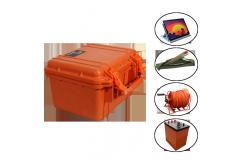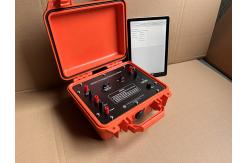Resistivity Survey Instruments For Underground Water Detection
|
|
Resistivity Survey Instruments For Underground Water Detection Introduction: Resistivity surveys use instruments to measure the resistance of subsurface water in geological formations. These surveys are commonly used in hydrogeology for groundwater exploration and assessment. There are different types of resistivity survey instruments, including electrode arrays and groundwater profiling tools. These instruments are designed to help identify the presence of water, the direction of water flow, and the extent of water saturation. The results of a resistivity survey can be useful for determining the properties of groundwater and for determining its potential use for drinking or industrial purposes.
Application 1. Groundwater Exploration: Resistivity survey instruments are used to assess the subsurface characteristics and variability of resistivity, which can indicate the presence of water-bearing formations. By measuring the electrical resistivity of the ground at different depths, these instruments help in identifying potential locations for groundwater extraction. 2. Well Siting: In the process of siting new wells for water extraction, resistivity survey instruments aid in determining the most favorable locations by mapping subsurface resistivity variations. This helps in optimizing the placement of wells for sustainable water supply. 3. Leakage Detection: Resistivity surveys can also be applied to detect leaks and seepage from water storage facilities, such as dams and reservoirs. By mapping the subsurface resistivity distribution, these instruments can identify areas of low resistivity, indicating possible water leaks. 4. Environmental Studies: In environmental studies, resistivity survey instruments are used to assess the impact of human activities on groundwater resources. By mapping subsurface resistivity variations, these instruments help in monitoring groundwater quality and detecting potential contamination sources. 5. Geotechnical Investigations: In civil engineering and construction projects, resistivity surveys are utilized to investigate subsurface conditions for the design of foundations, tunnels, and other infrastructure. Detecting underground water bodies through resistivity surveys is crucial for assessing potential construction risks associated with water presence.
|
||||||
| Product Tags: Underground Resistivity Survey Instruments Underground Water Detection Resistivity Instruments Rechargeable Battery Geophysical Resistivity Meter |
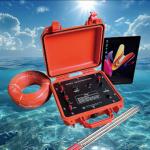
|
Geophysical Prospecting Equipment Resistivity Meter Accessories IP-Resistivity Integrated System |
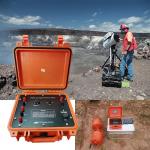
|
Underground Water Locator Geophysical Detection Device Resistivity Survey Equipment |
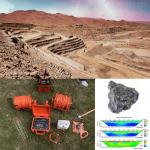
|
Multi-Electrode Water Detection System Resistivity Imaging for Geology Resistivity Survey |
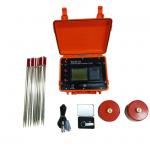
|
Dc Geophysical Resistivity Survey Meter And Induced Polarization Methods |
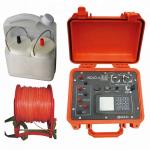
|
Electrical Resistivity Survey Meter For Groundwater Investigation Polarization Instrument |
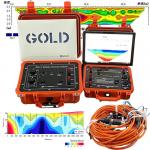
|
2D 3D Multi Channel Geophysical Resistivity Meter Survey Instrument |

